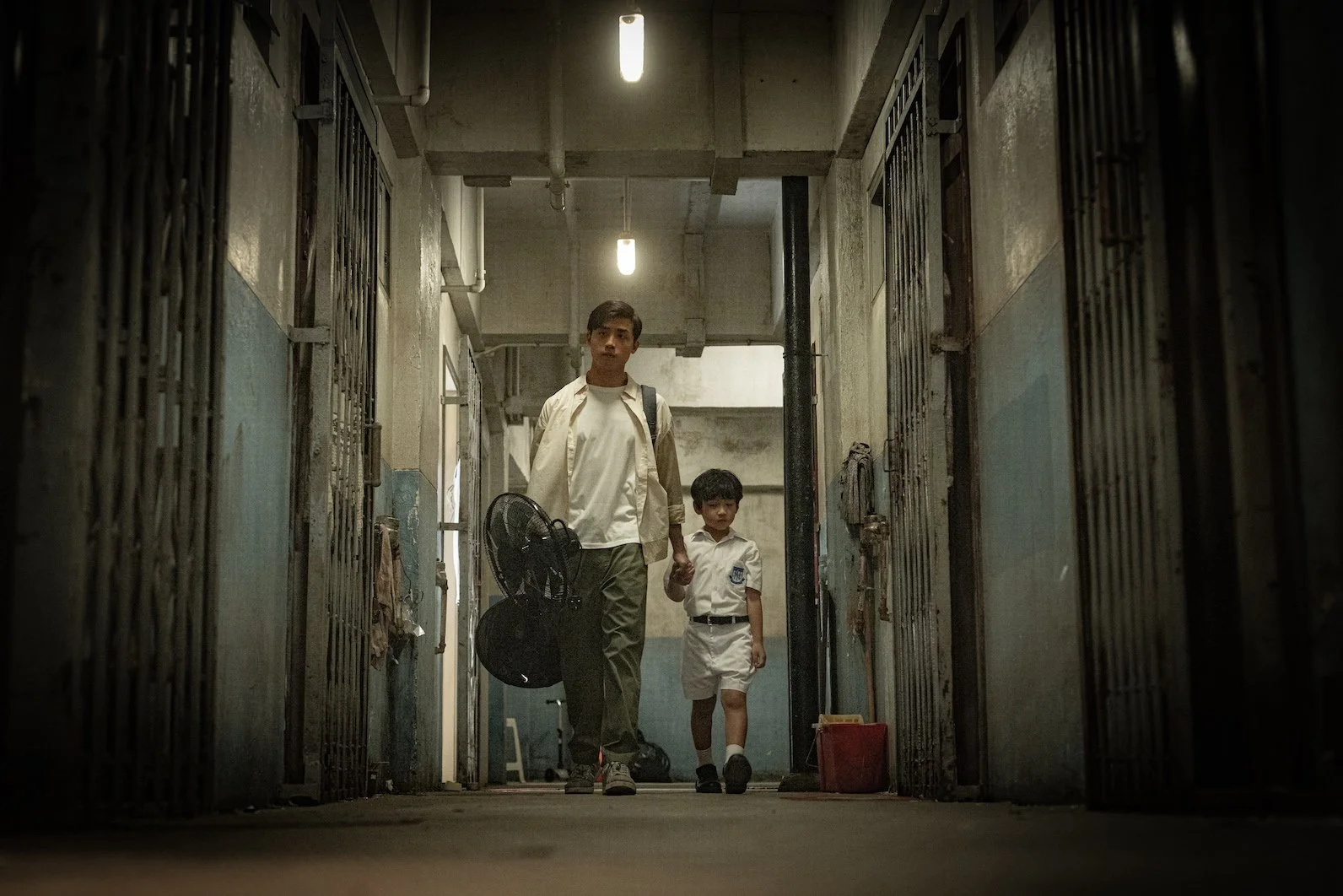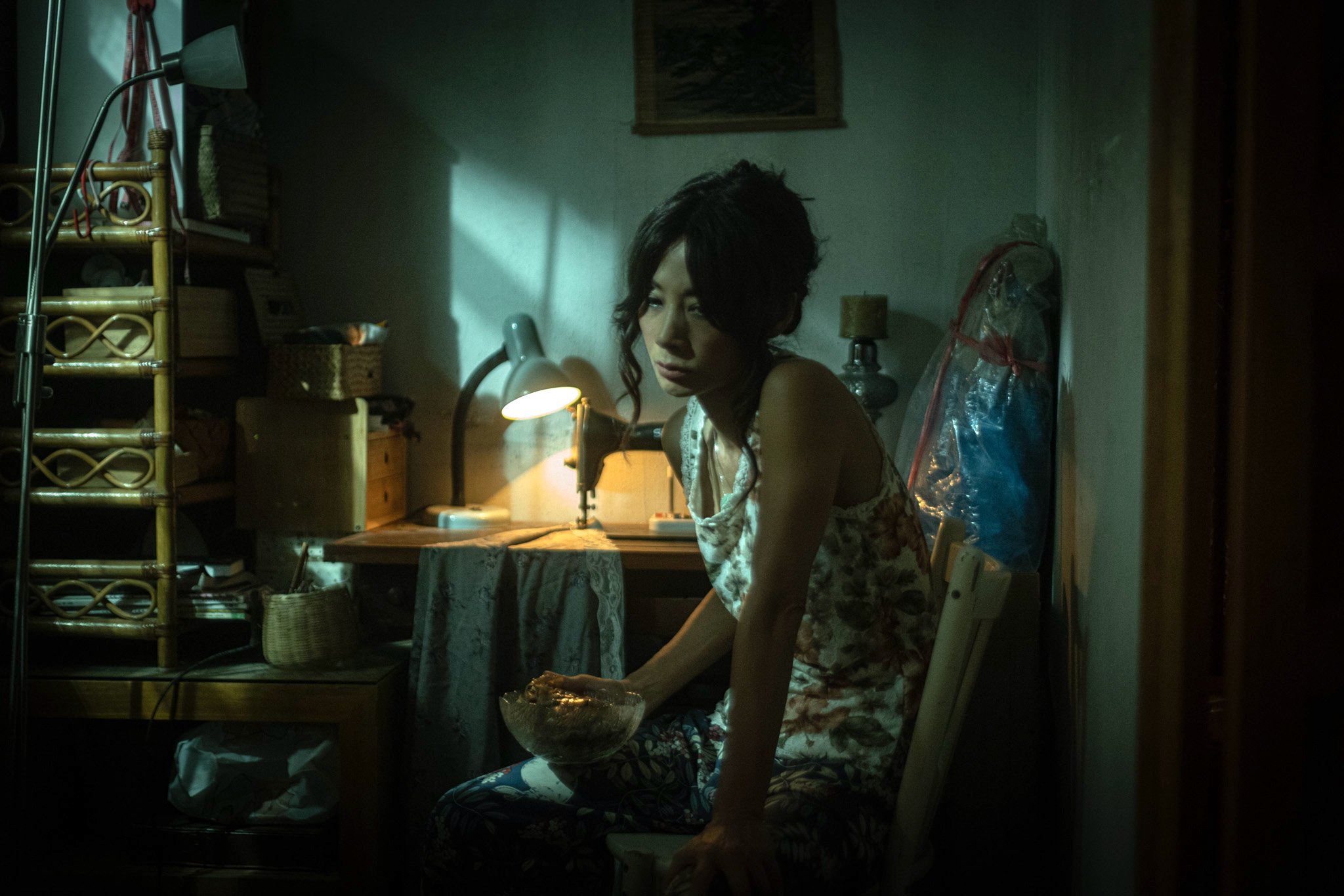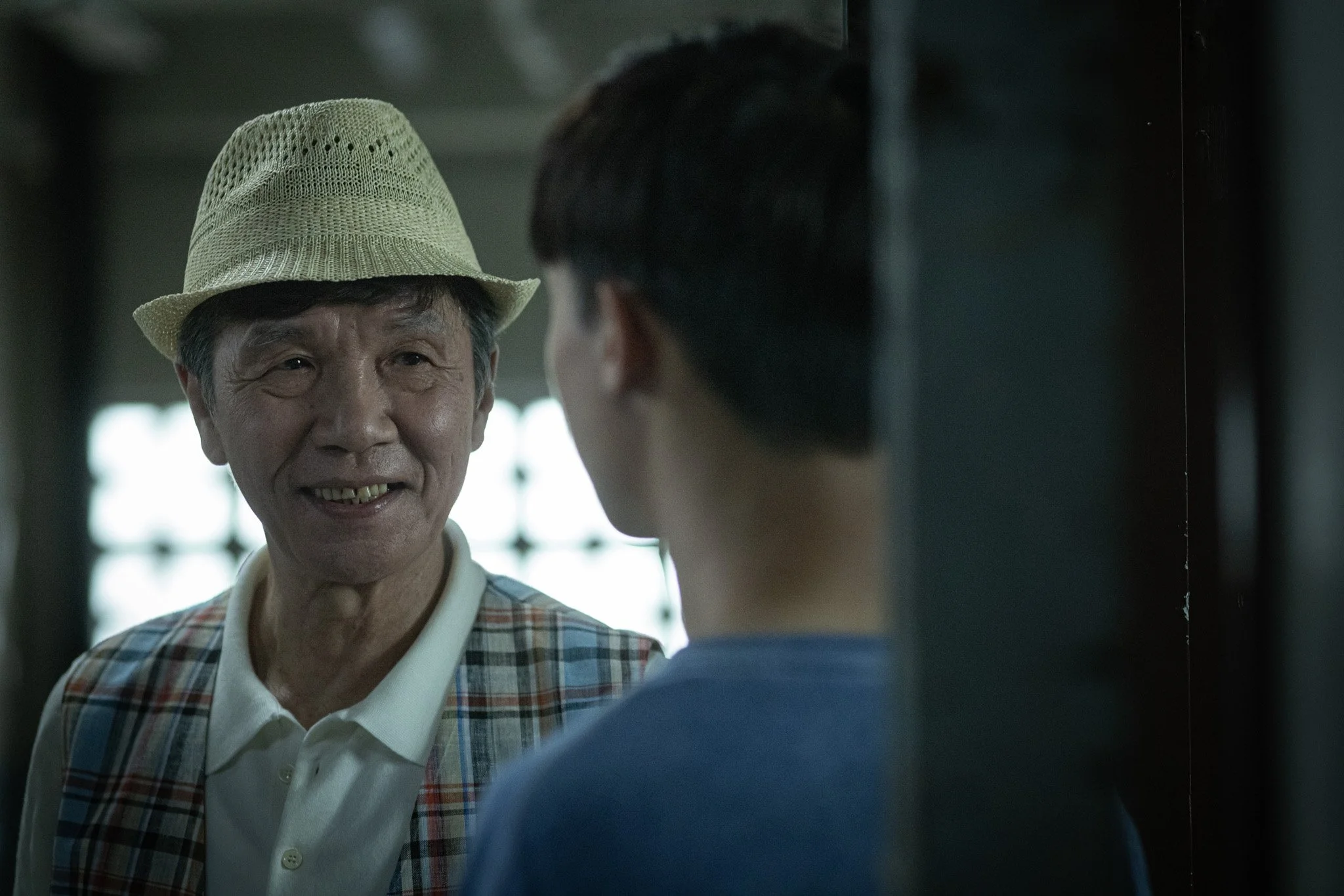‘Home’ Run
Hong Kong director Nate Ki comes flying out of the creaky estate flat gate with the freaky ‘Back Home’.
Back Home
Director: Nate Ki • Writer: Nate Ki
Starring: Anson Kong, Bai Ling, Tai Bo, Helen Tam, Sean Wong, Brian Siswojo, Shirley Sham
Hong Kong • 1hr 42mins
Opens Hong Kong September 14 • IIB
Grade: B
And so The Battle of the MIRROR Ansons begins (continues?). After Anson Lo got his moment in the horror spotlight in It Remains earlier this year, his partner in shaking his groove thang, Anson Kong Ip-sang, steps up to the plate in what should put him in the lead, were this a race. At first blush, first time feature director Nate Ki/Tse Ka-kei’s Back Home | 七月返歸 is a passably eerie chiller that exploits some reliable horror tropes (dark halls, jump scares, creepy The Grudge-style children), and juices them with a dash of Chinese afterlife mythology. It’s a relatively effective and affecting evolution of Hong Kong horror, and a sandbox that no one’s bothered to really play in recently. But Back Home sticks with you, lingering in the back of your mind for days and separates itself as a strong debut and a creepy AF allegory on several levels.
Heung Wing (Kong) is a young Hongkonger who relocated to Canada, who’s had yin yang eyes since childhood. Back then he was called Spooky, and on top of his ability to see the dead, his mother Lan (Dumplings’ Bai Ling, the Sean Young of Asia), is the neighbourhood’s “whack job”, a mentally unstable woman trying to raise her son alone. They make lovely pariah. After she attempts suicide and winds up in a coma, Wing is called back to look after her, possibly her affairs. He’s back in her decaying flat all of five minutes when weird shit starts happening, starting with another attempted suicide across the hall. Wing finds himself coming to the rescue of Yu (Sean Wong Tsz-lok), a neighbour kid who also sees ghosts, like the ones on the prohibited 7/F (uh oh). At first the strange goings-on force him to question his own sanity, but later they force him to suss out the bizarre cult that seems to rule his housing estate.
Back Home was a product of a couple of those well-meaning, but usually misguided funds designed to support emerging filmmaker (Udine’s Focus Asia and MM2’s. Movie Maker Awards) but this one hit the target. Writer-director Ki clearly spent a lot of time perusing contemporary horror; the likes of Hereditary (which is turning out to be a massive influence) and Jordan Peele’s work is threaded through Back Home, as is more high brow ghost storytelling from here at home: the force of Rouge and Visible Secret is strong with this one. Ki’s film has much in common, tonally and visually, with Stanley Kwan and Ann Hui’s films, upmarket ghost dramas as much as chillers, that had a thing or two to say about modern Hong Kong.
Ki is blessed with a strong cast and crew that go a long way to realising a cohesive vision that quite confidently fires on multiple cylinders. Kong doesn’t exactly blaze across the screen – he mostly looks blank and confused, which at least works within the story – but DOP Rick Lau Tsz-kin (Ten Years, Hand Rolled Cigarette) and art directors Ceci Fok Pui-sze (whose work was also a highlight of It Remains) and Cheung Bing make the most of the dank hallways and dehumanising towers that mirror Wing’s downward psychological spiral. Then there’s Tai Bo and Helen Tam Yuk-ying as Uncle Chung and his wife, Mrs Chung, who’s always buzzing around offering Wing her special soup. When she dons her twin sets, complete with pearls and perfect coif, she turns straight up sinister. But Bai runs away with the film in a typically manic performance that makes full use of her ability to be enigmatic one moment and overly-emotional the next, as well as her off-screen persona. We’ve missed you Ling!
All that’s why Back Home, fundamentally, works. As the line separating who’s dead, who’s living, what’s real and what isn’t blurs, and Wing’s mental health comes into question the film wades into repressed memory territory, and every dark corner and maybe apparition makes us – and Wing – wonder what it means. At the same time, when the residents of the estate start demanding Wing take his rightful place at “home”, where a “better future” is in store and where “peace is coming”, to have a family and settle in for the brighter long haul – “It’s good you’ve come home” – the walls closing in take on new meaning.
Still, Back Home’s screenplay is needlessly fussy; there are too many timelines that aim to be mysterious but wind up being simply muddled, too many kids in elementary school uniforms to be able to pinpoint which ones are crucial to Wing’s story, and – again – rape is a major plot point (is it too late to start keeping track?). Ki comes close to beating some of the key set pieces to death, but the strong images and sharply telegraphed ideas (Hong Kong filmmakers have started writing a new film language of late) are vivid enough to forgive what are rookie missteps and tired tropes rather than useful ones. — DEK



